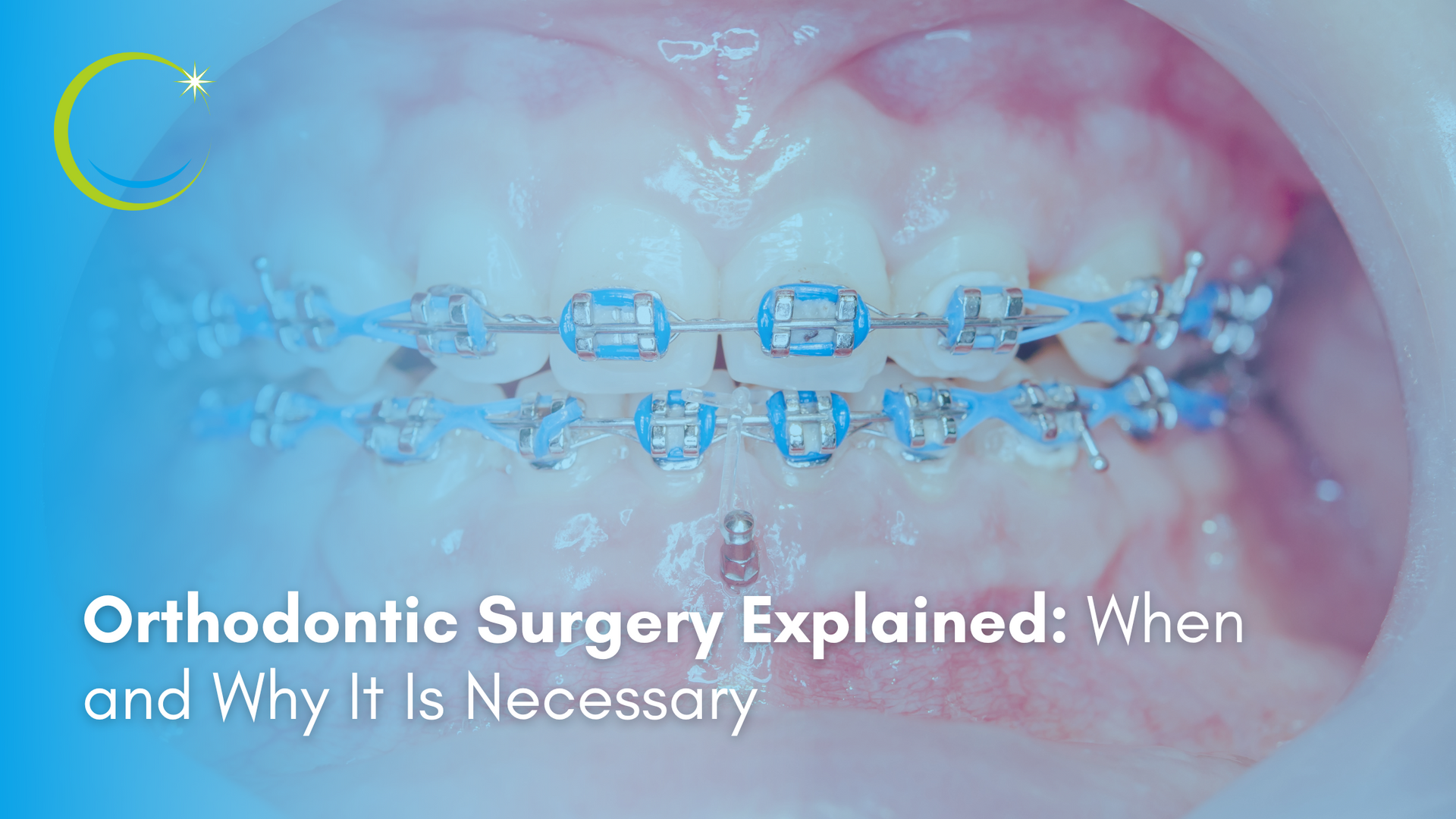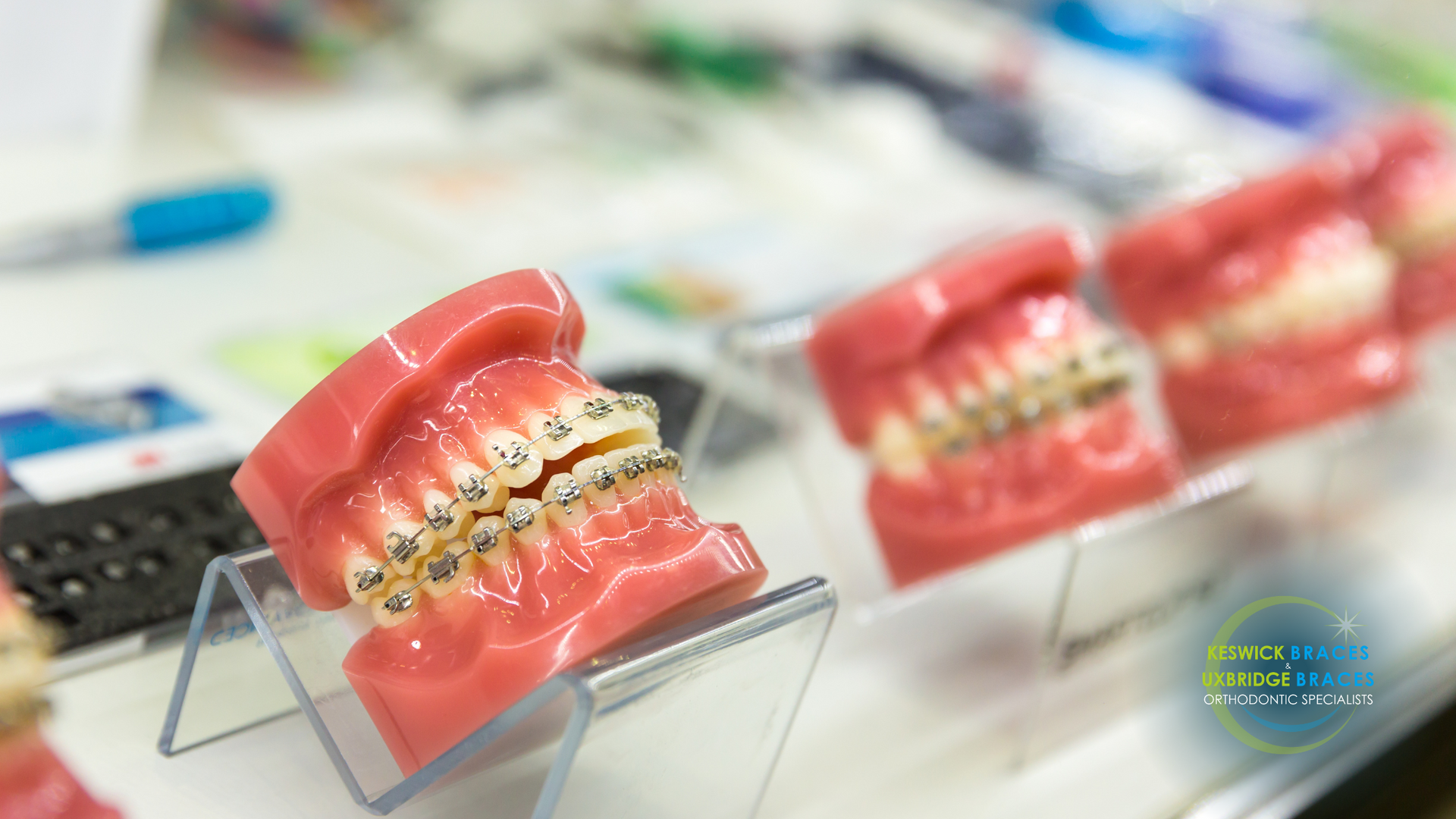Orthodontic Surgery Explained: When and Why It Is Necessary

Source: Dr. Marketing
When it comes to achieving a healthy, beautiful smile, sometimes traditional orthodontic methods—like braces or clear aligners—aren’t enough. For patients who have severe misalignments in their jaws, significant bite issues, or extreme crowding, orthodontic surgery may be necessary to provide the best possible outcome. At Keswick Braces & Uxbridge Braces, we understand that this is a big decision, and we are here to guide you through the process and determine if this treatment is right for you.
Our team specializes in both non-surgical and surgical orthodontic treatments. This blog will take you through everything you need to know about orthodontic surgery, so you can feel confident and informed when making decisions about your treatment.
What is Orthodontic Surgery?

Orthodontic surgery, also known as surgical orthodontics or orthognathic surgery, is a specialized procedure used to correct irregularities of the jaw. While many people think orthodontic treatment is limited to braces or clear aligners, sometimes these traditional methods can only go so far. If your bite is significantly misaligned due to the positioning of your jawbones, then surgery may be the best option to restore proper function and alignment.
At Keswick Braces & Uxbridge Braces, we work closely with experienced oral and maxillofacial surgeons to address more severe orthodontic cases. The process typically involves adjusting the jawbones to improve your bite and facial structure. After surgery, braces or Invisalign are used to finalize tooth positioning, ensuring a straight and beautiful smile.
Signs You May Need Orthodontic Surgery

So, how do you know if you need orthodontic surgery? Our orthodontists, Dr. Janice McMinn and Dr. Donald Stubbs, may recommend surgery for patients who are experiencing significant issues that cannot be corrected with braces or aligners alone. Here are some common signs that orthodontic surgery might be necessary:
Severe Bite Problems
If you have a severe overbite, underbite, or crossbite, you may be a candidate for orthodontic surgery. These types of bite issues can cause difficulty chewing, speaking, and even breathing in some cases. They can also contribute to jaw pain and discomfort over time.
Jaw Pain or TMJ Disorder
Orthodontic surgery may be needed if you experience persistent pain in your jaw, particularly in the temporomandibular joint (TMJ). Misalignments in your jaw can lead to tension and discomfort that simple braces can’t fix.
Facial Imbalance
Some patients have a noticeable facial imbalance or asymmetry due to the positioning of their jaws. This could include a receding chin or an elongated lower jaw. Orthodontic surgery can help correct these issues, leading to better facial harmony.
Problems Closing Your Mouth
If you find it difficult to close your mouth comfortably or if your lips don’t meet naturally, it could be due to a misaligned jaw. Surgery can address this problem by realigning the jawbones.
Sleep Apnea
For some patients, jaw misalignment can contribute to obstructive sleep apnea, a condition where breathing repeatedly stops and starts during sleep. Orthodontic surgery may be part of a comprehensive treatment plan to open the airway and improve breathing during sleep.
At Keswick Braces & Uxbridge Braces, we conduct thorough evaluations to assess whether surgery is truly necessary for your specific case. During your consultation, our experienced team will take detailed images of your mouth and jaw, which will include X-rays and advanced 3D scans. These diagnostic tools enable us to get a comprehensive understanding of your unique situation, ensuring that we consider all factors before recommending a course of action. Our goal is to provide you with the most accurate assessment and treatment plan tailored to your individual needs.
The Orthodontic Surgery Process

If we determine that orthodontic surgery is the best option for you, the next step is to plan the procedure. We coordinate closely with your oral surgeon to ensure a seamless and successful treatment.
Here’s a general overview of what to expect:
- Pre-Surgery Orthodontics: Before surgery, you’ll likely need to wear braces or clear aligners for a period of time. This helps to position your teeth in preparation for the surgical procedure. This pre-surgery phase can last anywhere from 12 to 18 months, depending on your specific case.
- The Surgery: Orthodontic surgery is typically performed in a hospital setting by an oral and maxillofacial surgeon. Depending on the severity of the case, the surgeon will adjust the upper jaw, lower jaw, or both to correct the alignment. The procedure is usually done under general anesthesia and can take several hours.
- Recovery: After surgery, there will be a recovery period where you’ll need to take time off from regular activities. Most patients require about two weeks of rest, during which time the jawbones will begin to heal. You’ll be on a soft-food diet for a while and may experience some swelling and discomfort, which is completely normal.
- Post-Surgery Orthodontics: Once your jaw has healed, you’ll return to Keswick Braces & Uxbridge Braces here to continue with orthodontic treatment. Braces or aligners will be used to fine-tune the positioning of your teeth and ensure that they are perfectly aligned with your new jaw structure. This phase typically lasts six to 12 months.
Benefits of Orthodontic Surgery

Orthodontic surgery can seem like a significant commitment, particularly when considering the emotional and financial investment involved. However, for the right candidates, the benefits can be nothing short of transformative and truly life-changing. This procedure not only enhances the appearance of the smile but can also improve oral function, boost self-esteem, and positively impact overall health. Here are some of the key advantages of undergoing surgical orthodontics at Keswick Braces & Uxbridge Braces:
Improved Function
One of the primary goals of orthodontic surgery is to restore proper function to the teeth and jaws. After surgery, patients often find that they can chew, speak, and even breathe more easily than before.
Enhanced Aesthetics
Many patients who undergo orthodontic surgery also experience an improvement in their facial appearance. Jaw realignment can correct asymmetry and balance the proportions of your face, giving you a more harmonious look.
Long-Lasting Results
When combined with orthodontic treatment, surgical results are long-lasting. Patients can enjoy a beautifully aligned smile and improved jaw function for years to come.
Increased Confidence
Living with jaw misalignment can affect your confidence, especially if it causes visible facial imbalances. After surgery, many patients feel more confident in their appearance and experience an overall boost in self-esteem.
Is Orthodontic Surgery Right for You?

Deciding whether orthodontic surgery is right for you can be overwhelming, but at Keswick Braces & Uxbridge Braces we are here to guide you every step of the way. Our team will conduct a comprehensive evaluation and provide you with all the information you need to make an informed decision. If you have been struggling with bite issues, jaw pain, or facial imbalance, it may be time to consider orthodontic surgery. Contact our team at Keswick Braces or Uxbridge Braces today to schedule your consultation and take the first step toward a healthier, more functional smile.











